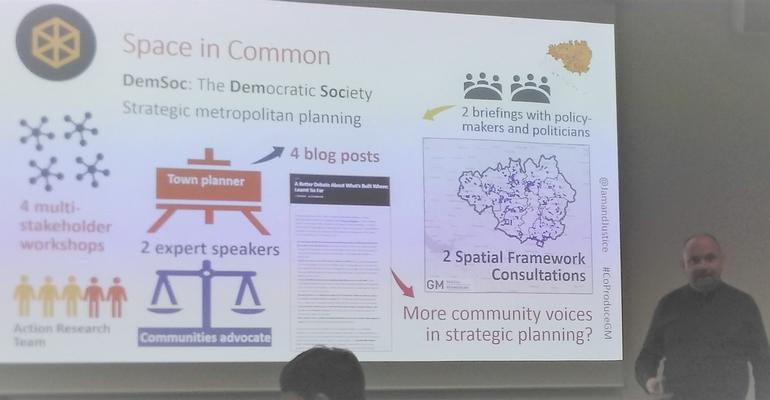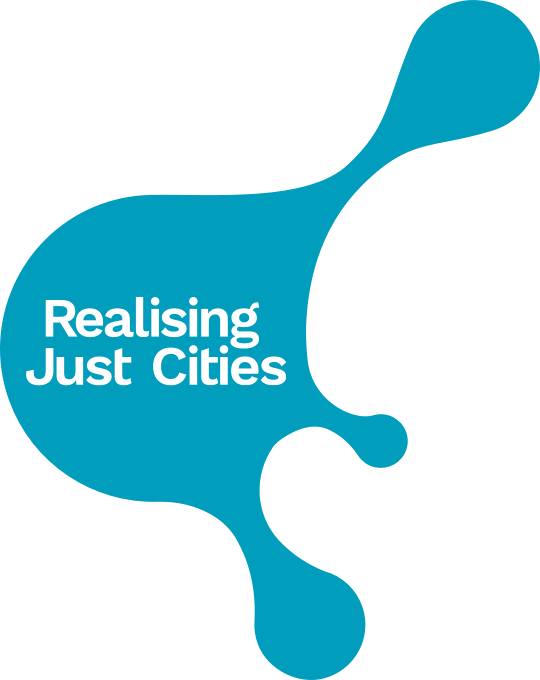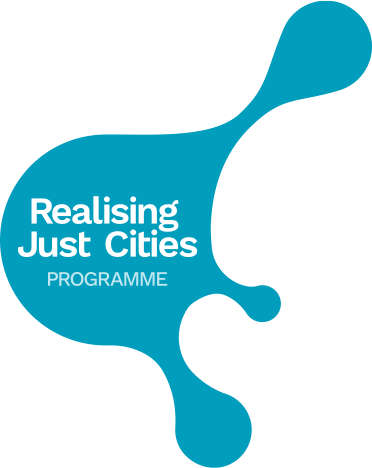From managerial to collaborative methods

During a visit to Gothenburg in March 2019, the Jam and Justice delegation held three workshops with officers from Gothenburg City Council and Gothenburg Region Assocation of Local Authorities. In this 6th post from the translocal learning series, Jam and Justice ARC member Adrian Ball reflects how preparing to speak in Gothenburg prompted him to appreciate the ways the project had influenced his day job.
Adrian writes:
For a quarter of a century, I have been a practitioner, service manager and charity leader in the fields of young people’s and community services. I have been heavily influenced by managerial models of service delivery, characterised by targets, payment by results, quality frameworks and competitive tendering. I like to think I have also been keen to explore and to challenge myself and others as to why we construct and deliver services to achieve outcomes in the way that we do.
Perhaps my earliest reflections on how societal change may happen through organisations occurred during studies I undertook 8 years ago, as part of a Postgraduate Diploma in Voluntary Sector Management. This personal investment in time to think in a deeper way about how organisations such as I had worked within were governed and managed, whetted my appetite for some deeper thinking beyond the next round of targets.
The opportunity to join the Jam and Justice Action Research Collective was timely for me. It offered chance to continue my personal and professional development in a way that would fit with the job role that I had recently gained – as the CEO of a Manchester charity.
Upon learning more about the programme I was motivated to get involved for four main reasons:
- To influence the programme design – I had initial concerns about the relative roles of university and community sector colleagues
- For my personal development
- To network with new cross-sector colleagues for mutual benefit
- To contribute to shared learning
Key stages
As I look back on my time with Jam and Justice, I identify the following key stages:
- Group forming
- Identification of ways of working
- Issues exploration
- Project specification and selection
- Project planning/commissioning
- Project Delivery
- Project Assessment
- Programme evaluation
- Programme Communication
There have been different degrees of influence or impact upon me, the JJ project or other areas at each stage. At some stages, the direction of impact has been more towards myself, and at other stages maybe I have made more of a contribution.
It is only at this point in time, towards the end of the programme, that I have been able to recognise how I developed during the 3 years, and how that personal development has manifested in my working life, I think, for the long term benefit of my charity and its beneficiaries.
It is only at this point in time, towards the end of the programme, that I have been able to recognise how I developed during the 3 years, and how that personal development has manifested in my working life, I think, for the long term benefit of my charity and its beneficiaries.
Jam and Justice’s impact on my own (organisational) development
There have been several instances since the turn of the year where I’ve had to present the charity’s story. In itself, this is no different than normal, but maybe historically that has been just a list of what we do, rather than placing that in a methodology.
I’ve been CEO for 4 years and can even see the presentation I did for my interview, which referred to the organisation being ‘burdened by being a list of services’ rather than having a coherent identity. That affected the organisation’s ability to understand itself, and more importantly for others to buy into and get what it was.
Work alongside colleagues in Jam and Justice, with the different flavours and depths of co-production, prompted me to begin to identify from my own perspective what the organisational way of working really is, and to talk about this with staff, with investors and with the board, about an aspiration for our way of working that builds upon our proud heritage.
the different flavours and depths of co-production, prompted me to begin to identify from my own perspective what the organisational way of working really is
Manchester Settlement: Creating Cycles of Community Change
Manchester Settlement has been working with the people of Manchester within local community settings for 124 years. Our services have changed over time, but the core values and way of working is essentially unchanged. We continue to utilise people and facilities to improve the lives and the aspirations of people in a wide variety of circumstances. The locations from which we work and the services or projects continue to change, and the language we use has changed, but essentially we continue to work in a very similar, but poorly identified and described way.
Working alongside Jam and Justice colleagues with different, deeper experiences of co-production progressed my understanding of how powerful co-production can be in creating longstanding outcomes for individuals and communities. My increased understanding and belief in co-production enabled me to think more deeply with my colleagues and service users about how we currently co-produce, and our aspirations for better co-production.
This reflection has produced a single values-led model of how we aspire to work, through a process we now call “creating cycles of community change”.
a single values-led model of how we aspire to work . . . “creating cycles of community change”
I have captured its key features in a simple diagram (shown below):
What is a Cycle of Community Change?
The model applies across all our work, whether that be:
- educating children in our nursery
- supporting parents through peer groups
- providing health and wellbeing activities
- facilitating preventative health interventions
- providing holistic life support for care leavers and asylum seekers
- providing leisure opportunities for older people
The model has four main components: needs, strengths, activity, and community.
The model has four main components: needs, strengths, activity, and community
The model recognises that many people come to us because they have an immediate need. We aim to support them through jointly problem-solving to meet that need.
The journey towards that solution is more important than the solution. We will seek to identify the strengths that an individual or community has, and we will seek to build upon those strengths, building self-confidence as we go.
We believe that when people get involved in activity, alongside other people, that develops friendships, networks, partnerships. Where possible we will deliver our work in group settings where people can develop these links.
Finally, we aim to support people to make a contribution to the community. This should be about becoming involved in co-production, but at a deeper level, getting involved in helping other people, possibly as a volunteer.
A new model?
All the ingredients of this model have been in the organisation to different degrees for a long time, but there had not been the self-perception or the self-confidence to articulate this way of working.
It was the experiences that I had in Jam and Justice, genuinely co-producing projects and outcomes in outcome areas that had not been defined by an external agenda that added value to my ability to reflect upon and dissect our organisational development. This prompted construction of a new 5-year strategy for Manchester Settlement.
genuinely co-producing projects and outcomes in outcome areas that had not been defined by an external agenda ... added value to my ability to reflect upon and dissect our organisational development
Adrian Ball,
Charity Chief Executive
Third Sector representative
This blog post was developed from an interview carried out by ESRC Impact Officer Iona Hine.
About Trans-local Learning
To exemplify co-productive design principles means challenging the idea of an ‘end-user’ who receives a final report. It means rethinking what impact looks like and how it can be achieved. Our commitment is to engage decision-makers in a collaborative learning journey through informal spaces for exchange and international networking.
Trans-local learning is an important element in opening up spaces for learning and dissemination often reserved for academics to urban decision-makers. Trans-localism is more than just cities learning from each other across national boundaries. It points to the need for meaningful interactions between networked individuals and groups of similarly thinking people beyond the local. What is at stake is a sense of belonging through shared perspectives and concerns that transcend local boundaries.
More from the Trans-Local Learning series:
[5] Fiona Bottrill visualises "changing the world", explaining how Gothenburg learning now informs her work in the West Midlands.
[4] Anne Lythgoe advocates more co-production following a trip to Gothenburg.
[3] Alice Toomer-McAlpine explores digital democracy with Barcelona's Decidim.
[2] Jacob Botham and David Rogerson reflect on the International Observatory for Participatory Democracy's 2018 conference.
[1] David Rogerson and Nick Fairclough draw some conclusions from Mistra Urban Futures annual conference.




